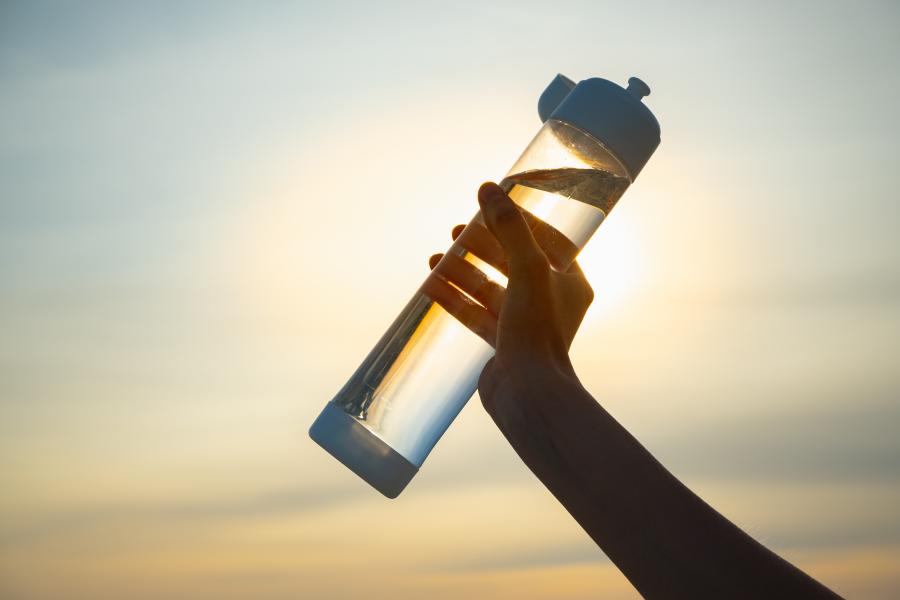Beat the Heat: How to Stay Hydrated

Proper hydration is essential to our health. Our bodies are about 60% water and the water we drink regulates body temperature and blood pressure, keeps muscles and joints moving, moves waste out of the body, and aids in digestion.
Staying hydrated is especially important during the hot and humid days of summer when our bodies lose water quicker and must work extra hard to maintain a normal temperature.
Dehydration can be dangerous and cause muscle cramps, dizziness, headaches, nausea, and fainting. Older adults and young children are particularly susceptible to dehydration. Staying hydrated helps avoid heatstroke and other heat-related illness that can occur when your body is struggling to regulate its temperature.
Recommendations vary depending on weight, age, and activity level, but a general guideline for how much water you should drink is 8, 8-ounce glasses each day.
Another guideline is to divide your weight by 2 and drink that number in ounces. For example, a 150-pound person would need 75 ounces (150/2) of water per day. You should talk to your doctor to be sure that you’re drinking the right amount of water for your body type and your activity level.
The best and easiest thing you can do to keep cool and hydrated is to drink plenty of tap water!
Tap water is not only the healthiest option but also the most economical. Water is the healthier beverage option over sugary sodas and juices. And while a typical bottle of water or sports drink can cost you $2.00, a gallon of tap water is less than a penny!
Here are some more tips to help you stay hydrated:
- Carry a reusable water bottle with you that you can easily refill with tap water. You're more likely to drink water if it's with you. And you’ll save money and help the environment by filling up your water bottle throughout the day rather than buying bottles of water.
- Don't rely on thirst alone. Thirst can be one measure of hydration but it's not the first means of feedback, so rehydrate before you feel too thirsty.
- Make hydration an all-day event. Sipping water throughout the day is a more effective way to stay hydrated than drinking a large volume all at once.
- What you eat counts. Eat foods with high water content like cucumbers, berries, citrus, melon, greens, and tomatoes. You can eat these foods as a snack or incorporate them into your meals.
- Drink alcohol and caffeinated drinks in moderation. They can have a diuretic effect, pulling water from the body rather than replacing it.
- Flavor your water. Try adding fruit, herbs, or a splash of 100% fruit juice for added flavor without all the sugar of juice or sports drinks.
